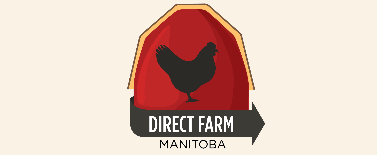Will a Carbon Tax be Disruptive?
 Wednesday, October 9, 2019 at 9:44AM
Wednesday, October 9, 2019 at 9:44AM  In the run-up to the federal election, we continue our examination of the carbon tax. The Conservatives say they will cancel this tax. The Liberals say they will continue with their plan to gradually increase the tax to $50 per tonne of carbon. The NDP have said they will basically continue the Liberal Plan. The Greens say they will continue the Liberal plan, but not stop the increase at $50 per tonne, but continue increasing the tax until the use of fossil fuels has been phased out. Of course each party has more to its environmental policy than this, but here we limit our discussion to the carbon tax.
In the run-up to the federal election, we continue our examination of the carbon tax. The Conservatives say they will cancel this tax. The Liberals say they will continue with their plan to gradually increase the tax to $50 per tonne of carbon. The NDP have said they will basically continue the Liberal Plan. The Greens say they will continue the Liberal plan, but not stop the increase at $50 per tonne, but continue increasing the tax until the use of fossil fuels has been phased out. Of course each party has more to its environmental policy than this, but here we limit our discussion to the carbon tax.
We Only Contribute Two Percent
 Wednesday, October 2, 2019 at 3:36PM
Wednesday, October 2, 2019 at 3:36PM When I discuss a carbon tax or a resource tax with thoughtful people who are opposed to a carbon tax, there are generally three objections. One is that, of the Green-House Gas (GHG) going into the atmosphere, Canada accounts for only 2%. Another is that in order to effect behavioural change, the tax will need to be substantial. Such a large tax will be very disruptive, and we can’t handle that. The third objection I hear is that such a tax would be to painful for a particular sector of the economy.
Land, Labour, Capital
 Tuesday, September 24, 2019 at 7:58AM
Tuesday, September 24, 2019 at 7:58AM  Basic economics says that whenever we make anything there are three fundamental inputs. In economics these inputs are called Factors of Production -- land, labour, and capital. Land in this context is what the planet offers, so in addition to land there is water and air, but also oil, iron, aluminum, etc. We all know what labour is. Capital is what people have created, the tools, that can be used in the production of the goods we want.
Basic economics says that whenever we make anything there are three fundamental inputs. In economics these inputs are called Factors of Production -- land, labour, and capital. Land in this context is what the planet offers, so in addition to land there is water and air, but also oil, iron, aluminum, etc. We all know what labour is. Capital is what people have created, the tools, that can be used in the production of the goods we want.
Do Taxes Affect Behaviour?
 Wednesday, September 18, 2019 at 8:46PM
Wednesday, September 18, 2019 at 8:46PM  Today, because we are in election season and the advisability of a carbon tax is in the air, we continue our examination of how such a tax might affect us.
Today, because we are in election season and the advisability of a carbon tax is in the air, we continue our examination of how such a tax might affect us.
Do taxes affect behaviour? Of course they do. We all know of cases where it has. It may even have affected our behaviour.



